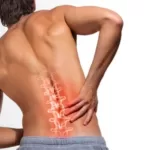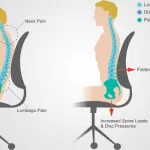HOW DOES STRESS AFFECT YOUR MUSCULOSKELETAL SYSTEM?
This article will provide an overview of how stress affects your musculoskeletal system.
Stress is a quantifiable and qualitative feeling of mental and/or physical tension. The causes of stress and symptoms of stress were previously discussed in our post “A Closer Look at Stress: Effects on the Human Body”
CAN MUSCLE PAIN BE RELATED TO STRESS?
Chronic pain is an urgent and debilitating problem that reduces productivity and contributes to high healthcare costs, affecting more than 20% of US citizens in 2016. Chronic pain also includes fatigue, exhaustion, and general fatigue, all of which are conditions that hold us back. top performance. Research has shown that a significant proportion of individuals affected by chronic pain have overlapping psychiatric disorders; in a 2005 study by UW, Harvard, and UNC researchers, >68% of participants in a sample size of ~5700 patients with chronic spine pain had some other pain condition and 35% had a coexisting mental condition. It is concluded that this co-occurring pain and mental disorder is a significant contributor to the fatigue and musculoskeletal problems associated with chronic spinal pain.
Another study with a cohort of 422 adolescent patients found that there were significant associations between various stress factors and pain; higher levels of stress (such as worry, tension, lack of happiness) were correlated with longer pain duration, more pain sites, and increased pain intensity. Similar correlations have also been found in cases where individuals have symptoms of both fatigue and chronic pain.
This leads to the belief that stress can manifest as pain in the musculoskeletal system. It is important to distinguish that some psychiatric diagnoses have genetic or biochemical roots that cannot be recognized during the initial consultation/diagnosis.
So explain further
Psychiatric disorders and musculoskeletal disorders stem from neurobiological pathophysiology and share common symptom mechanisms at the molecular level. The motor component of pain that occurs in our musculoskeletal systems has been found to share neuronal circuits with stress signalling pathways; both stress and pain signals are integrated in the hippocampus, amygdala, and ventromedial prefrontal cortex, with indications of physicochemical remodelling in chronic disordered states.
A linked model like the one described earlier is gaining in popularity and expansion. In the future, you might expect a medical diagnosis of a musculoskeletal symptom, such as neck and shoulder pain or chronic back pain, to have some sort of psychological or stress component.
YOU STILL HAVEN’T ANSWERED, “How does stress affect your musculoskeletal system?”
In short, psychiatric disorders and musculoskeletal problems go hand in hand. If you tire easily, are constantly exhausted, and deal with much more fatigue than you’d like, even though you live a fairly active lifestyle, chances are there are some psychological factors or other stressors to deal with. No amount of hip, back, or neck stretching can compensate for unaddressed stressors.
In most cases, stress exacerbates pre-existing musculoskeletal problems (such as tension and fatigue). In addition, researchers believe that pain in the musculoskeletal system can be experienced without tissue damage or any molecular change and is regulated by cognitive processes.
Stress creates cortisol, which contributes to tiredness, fatigue and musculoskeletal pain. Image from
I HAVE ENOUGH… I DON’T WANT STRESS, FATIGUE OR PROBLEMS WITH MY MUSCULAR SYSTEM. WHAT SHOULD I DO?
You can try to reduce the number of stressors in your life. The obvious answer is to move to a cabin in the mountains to live out the rest of your days off the grid in a self-contained, self-sufficient lifestyle. Kidding. Only partially.
It’s important to reduce (and possibly eliminate) stressors in your work environment or home using a combination of methods to achieve optimal well-being and peak performance.
To reduce the damage caused by lifestyle-related musculoskeletal disorders such as low back pain and ankle pain, it is essential to have healthy exercise habits with variations in body movement, a good diet and good posture.











